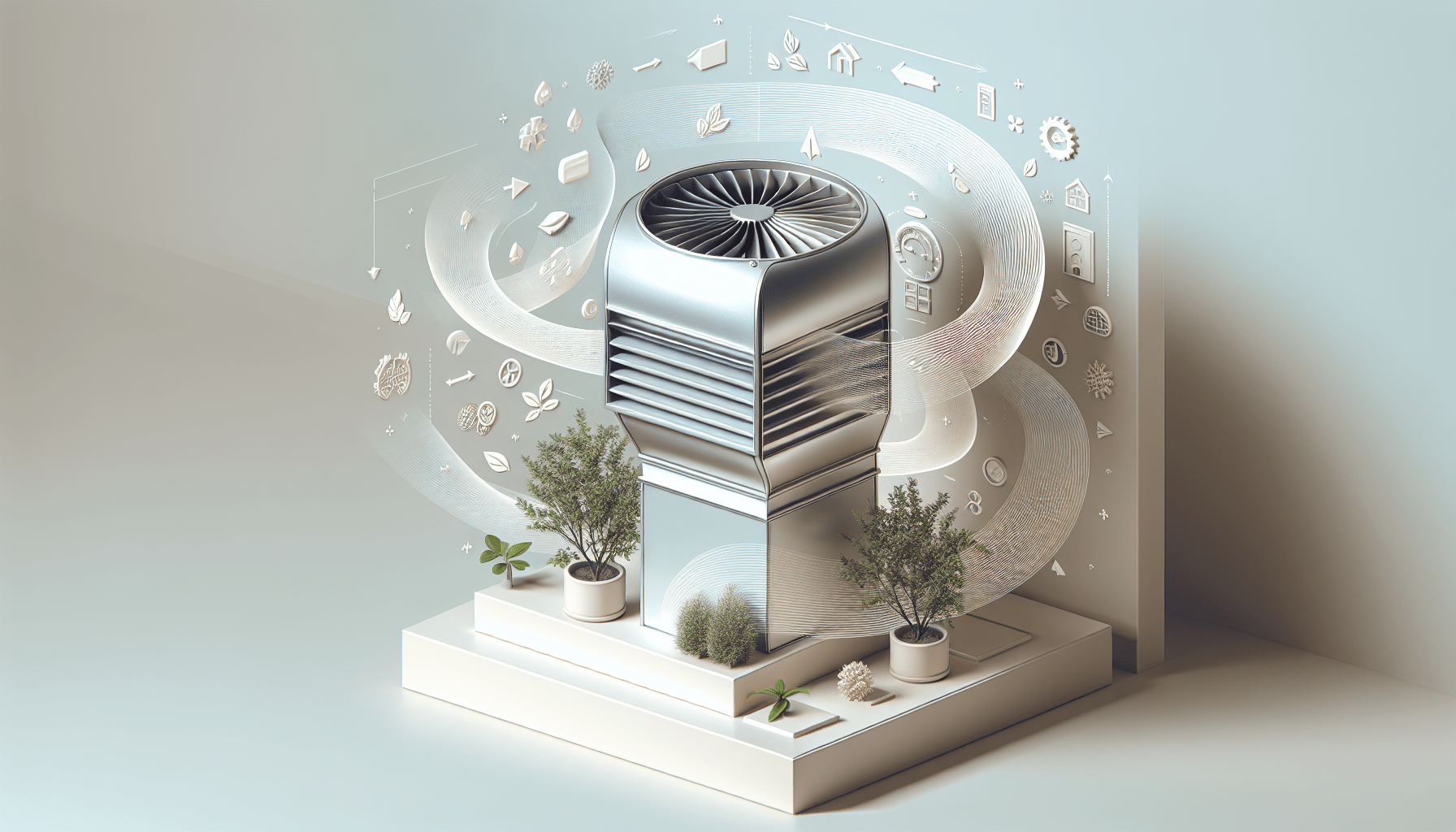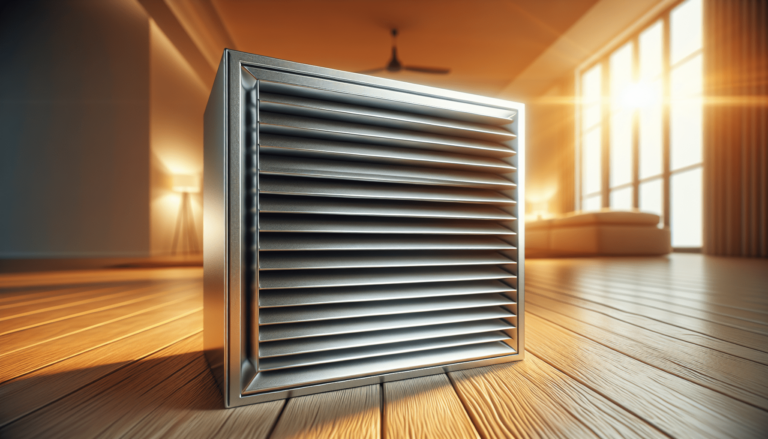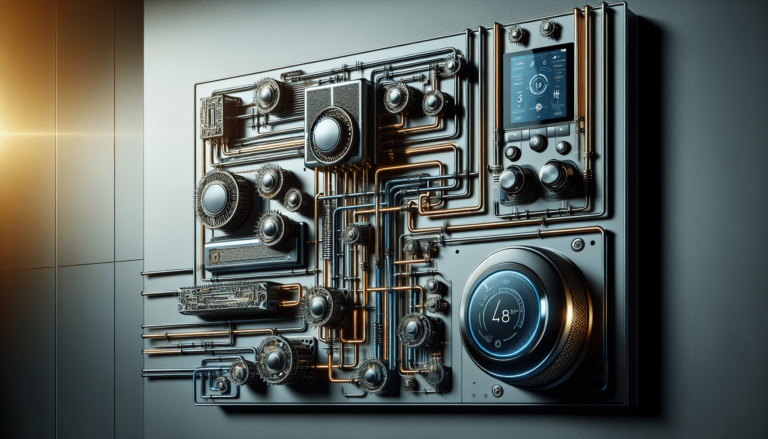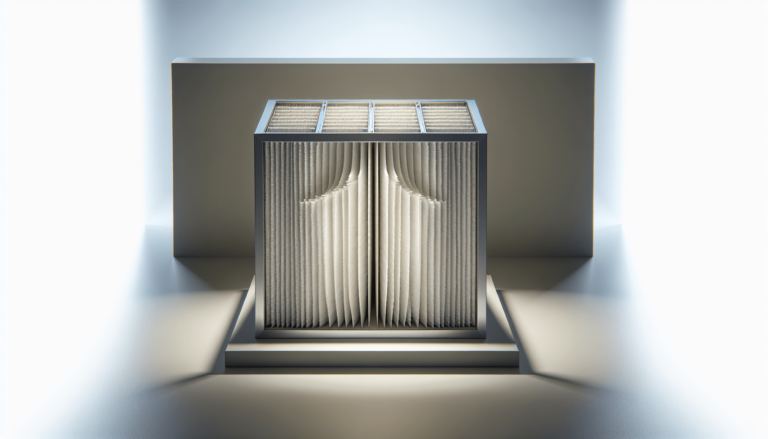

HVAC Services
Get Professional Repairs From The Area's Trusted HVAC Technicians. Ask About Our Services! We Offer Professional Heating & Cooling System Repairs And Guarantee Long-Lasting Results.
Got Question? Call us: (850) 678-2665Financing
Ways To Improve HVAC Airflow In Your Home
Discover simple tips to enhance HVAC airflow at home, ensuring comfort and efficiency with fewer cold spots, lower energy bills, and evenly distributed temperatures.

How often do you find yourself adjusting the thermostat but still feeling uncomfortable in your own home? Maybe the temperature feels uneven, with cold spots here and there. If so, you might be dealing with poor HVAC airflow. Improving HVAC airflow is essential for a comfortable and energy-efficient home. Let’s dive into how you can enhance airflow, reduce energy bills, and enjoy consistent temperatures throughout your space.

Understanding HVAC Airflow
Before diving into solutions, it helps to understand what HVAC airflow is. It refers to the movement of air through your heating, ventilation, and air conditioning (HVAC) system. Proper airflow means your system can efficiently distribute warm or cool air throughout your home.
Why HVAC Airflow Matters
Airflow impacts how efficiently your HVAC system operates. Good airflow ensures that conditioned air spreads evenly throughout your home, keeping your living spaces comfortable. Poor airflow can make your system work harder, leading to higher energy bills and more frequent repairs.
Identifying Poor Airflow
It’s crucial to recognize when your system isn’t working optimally. Signs of poor airflow include uneven temperatures, excessive dust, or weak airflow from your vents. Recognizing these symptoms early can save you from more costly repairs in the future.
Common Causes of Poor HVAC Airflow
Several factors can lead to poor airflow in your system. Knowing these can help you take targeted action to improve performance.
-
Blocked Vents and Registers: Furniture or curtains placed in front of vents can obstruct airflow.
-
Dirty Air Filters: When filters are clogged, your system has to work harder to pull in air.
-
Leaky Ducts: Air escaping through leaks can diminish the airflow quality.
-
Improperly Sized Ductwork: If ducts are too small or too large, they might not accommodate the necessary airflow effectively.
-
Mechanical Issues: Fan blades or motors that aren’t functioning properly can disrupt airflow.
Improving HVAC Airflow
Once you have identified the cause, the next step is improving the airflow. This process might involve simple DIY tasks or may require professional intervention.
1. Unblock Vents and Registers
Ensure no furniture, drapes, or rugs cover your vents. It’s a simple yet often overlooked solution. Keeping these areas clear supports smooth airflow throughout your home.
2. Regularly Replace Air Filters
Air filters should be changed regularly. Depending on your system and filter type, aim for every 1-3 months. Clean filters allow for better air passage and keep your system running efficiently.
3. Seal Duct Leaks
You can seal minor duct leaks with mastic sealant or metal tape. More pronounced leaks may require professional assessment and repair to ensure your system operates optimally.
4. Inspect Ductwork Size
Ensure your ductwork is the right size for your system. Inappropriate sizing can disrupt airflow and system efficiency. If unsure, consult with an HVAC technician.
5. Address Mechanical Components
Check the fan and blower motor for mechanical issues. If you notice strange noises or inconsistent blower performance, it might be time for a professional inspection.
Professional HVAC Maintenance
Routine professional maintenance can keep your HVAC system running smoothly. Regular checkups ensure components are in good working order and identify issues before they become major problems.
Benefits of Professional Maintenance
There are several advantages to scheduling regular professional maintenance appointments:
-
Improved Air Quality: Professionals take measures to enhance air quality through specialized cleaning and system adjustments.
-
Extended Lifespan: Keeping your system in top shape can extend its operational life.
-
Energy Efficiency: A well-maintained system uses less energy, reducing costs.

DIY Solutions and Professional Services
Consider a blend of DIY solutions and professional services for optimal results. Here are straightforward actions you can tackle at home, along with insights into when it might be best to contact the pros.
DIY Actions
Simple tasks can significantly impact DIY solutions for HVAC issues. Besides checking filters and vents:
-
Thermostat Check: Ensure your thermostat functions correctly. Replace batteries if needed, and consider upgrading to a programmable thermostat for better control.
-
Household Environment: Mind the placement of large furniture pieces that might hinder airflow. Consider using fans to enhance circulation.
When to Call in the Pros
Some issues require expert knowledge and tools. It’s time to call in professionals when:
- You suspect extensive ductwork leaks.
- Mechanical parts need repair or replacement.
- There’s uncertainty about the appropriate action to take.
Airflow and Energy Efficiency
Improving HVAC airflow doesn’t just enhance comfort—it also boosts energy efficiency. By ensuring air moves smoothly through ducts, rooms reach desired temperatures more quickly, reducing the strain on your system.
How Efficient Airflow Saves Money
Efficient airflow minimizes the workload on your HVAC system, decreasing wear and tear. It reduces energy consumption, leading to lower utility bills and fewer repair needs in the long term.
Looking at Air Balancing
Air balancing involves adjusting your HVAC system to ensure even temperature distribution. It’s an effective method for resolving hot and cold spots in your home.
Steps to Achieving Air Balance
Professionals typically perform air balancing, but understanding the process can help you communicate effectively. The process involves:
-
Measuring Airflow: Use specialized equipment to gauge the airflow in different areas.
-
Adjusting Dampers: Make tweaks to dampers in your ductwork to better regulate airflow.
-
Thermostat Positioning: Ensure the thermostat is in a central location, free from obstruction.
-
Zoning: Implement zones in larger homes to control temperatures in different areas independently.
HVAC System Upgrades
Sometimes, addressing specific issues isn’t enough. An older system may lack the necessary efficiency standards.
Is It Time for an Upgrade?
If your system is over ten years old or experiences frequent issues, upgrading might be beneficial. Modern systems offer better airflow, energy efficiency, and advanced features like smart technology.
Selecting a New HVAC System
Choose a system that matches your home’s size and needs. Consider energy-efficient models that suit your budget and environmental expectations. Consulting with an HVAC specialist can guide you in making informed decisions.
The Role of Insulation
Proper insulation complements good airflow. It ensures that conditioned air stays inside, maintaining temperature consistency and maximizing efficiency.
Improving Home Insulation
Ensure your home is properly insulated, focusing on key areas such as:
-
Attic Insulation: Hot air rises, so a well-insulated attic helps retain cool air during warmer months.
-
Door and Window Seals: Inspect seals and weather-stripping to prevent air leaks.
Optimizing Humidity Levels
Humidity affects comfort and can impact airflow quality. High humidity can weigh down air, straining your HVAC system, while low humidity can cause static and discomfort.
Maintaining Proper Humidity
Use humidifiers or dehumidifiers as needed to keep humidity levels balanced. Ideal humidity levels range from 30-50%, depending on your personal comfort preference and climate.
Conclusion
Improving your home’s HVAC airflow can seem complicated, but simple actions can have a lasting impact on comfort and efficiency. From checking vents to considering professional maintenance, there’s a range of strategies available to you. It’s about combining practical, immediate steps with strategic long-term planning to enhance your home’s climate control.
For any further queries or a detailed professional checkup, consider reaching out to Tempacure Heating and Air Conditioning at:
Tempacure Heating and Air Conditioning
325 Cedar Ave S, Suite B
Niceville, FL 32578
(850) 678-2665
https://tempacurehvac.com/
Taking proactive measures now can save you from discomfort and high bills later, ensuring your home remains cozy and efficient year-round.







